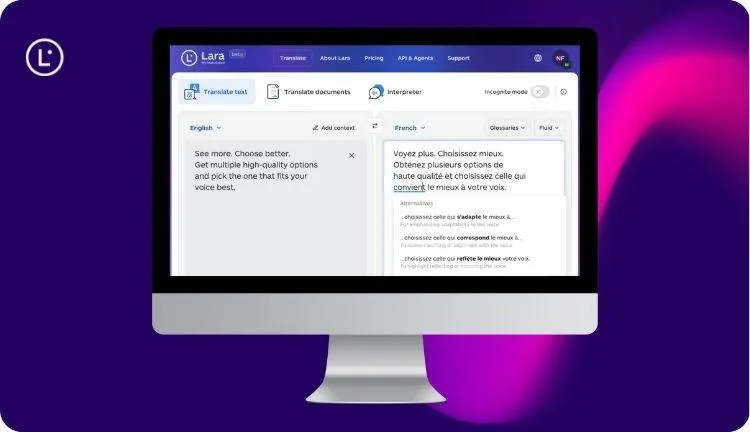Translate Fast, Scale Faster: A Multilingual Strategy for Startup Growth
Startups don’t grow city by city anymore. They go global from day one. A SaaS tool built in Berlin can get its first paying customer in São Paulo. A productivity app launched in Toronto might go viral in Tokyo by the end of the week.
Technology crosses borders instantly. Language doesn’t. And for early-stage founders, speaking your users’ language isn’t just a nice touch. It’s a serious growth lever.
If you want to scale fast, your message needs to move even faster.
Why Language Fuels Growth
Speed drives startups. Quick launches, fast feedback loops, and rapid experimentation are baked into the culture. But growth doesn’t happen just because you ship fast. It happens when users understand your value — in their own language, on their terms.
Here’s what the numbers say:
- 72 percent of consumers are more likely to buy from a site in their native language
- 40 percent won’t buy at all if content isn’t localized, even if they speak English
- Non-English-speaking early adopters are often overlooked and open to trying new tools
That’s not just a language gap. It’s a revenue gap.
Why Translation Slows Startups Down
Founders know translation matters. But putting it into action can feel like a mess. Websites, UI copy, help docs, pitch decks, support content — the list grows fast.
Traditional options don’t make it easier:
- Human translation is accurate but too slow and expensive
- Machine translation is fast but often tone-deaf and clunky
- Internal teams are already stretched thin
So what happens? Localization gets pushed back. And promising markets never get a real shot.
How to Build a Multilingual Strategy That Keeps Up
You don’t need a full localization team to move globally. You need a smart plan and the right tools.
Here’s how to start:
1. Go Multilingual from Day One
Design your product and content with global users in mind. Set up systems early that make translation easy. Internationalization isn’t a luxury — it’s basic hygiene if you plan to grow beyond your home market.
2. Use AI to Speed Things Up
Tools like Lara Translate help small teams move fast. Unlike generic translators, Lara understands domain-specific language and uses a massive dataset of real-world documents to keep tone and clarity intact.
Whether you’re translating your website, legal agreements, or investor decks, AI helps you scale without losing your voice.
3. Focus on the Essentials First
You don’t have to localize everything at once. Start with what matters most:
- Your homepage
- Key product screens
- Onboarding emails
- Help articles
- Decks for investors
- Basic legal docs
Launch, learn, and expand from there.
4. Localize More Than Just Words
Real localization means more than just translation. Think about cultural context, tone, pricing expectations, and design norms.
Examples:
- Price in local currencies
- Swap examples and visuals to match local culture
- Adjust calls to action to fit tone and formality in each market
Modern tools can even help you fine-tune tone and flag awkward phrasing before it goes live.
5. Make Translation Part of the Growth Loop
Treat multilingual content as part of your regular workflow. When you launch a new feature, make sure the content around it can go live in multiple languages too.
Track what performs well by language and region. Then double down where you see traction.
Startups That Translate Win
The results speak for themselves. Global-minded startups that localize early see:
- Faster traction in new markets
- Higher conversion rates outside English-speaking regions
- Stronger investor conversations with local-language decks
- Lower churn from users who actually understand your product
And because they’re not waiting on slow translation pipelines, they move faster than their competitors.
Language Isn’t a Barrier. It’s an Advantage
In 2025, startups that treat language like part of their growth engine — not an afterthought — are the ones pulling ahead.
With the right strategy and tools, even lean teams can go global, connect with users, and grow across borders without slowing down.
So if your startup is built for speed, don’t let your words hold you back.
Translate fast. Scale faster. Speak the language of growth.





